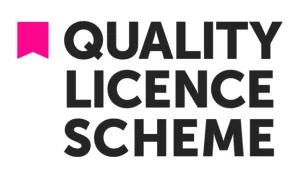Welcome to Open Learning College – Change your career, Increase your salary, and Improve your life.
 Course Overview
Course Overview 
Embark on a transformative learning journey with the UK’s most innovative home study provider, offering courses designed to unlock your true potential and facilitate the career change you desire. Access our distance learning courses directly from anywhere, anytime, and acquire industry-recognised Professional Qualifications essential for advancing in your career.
Specifically, explore the flexible and convenient Sports Psychology (Level 3) course, an ideal way to gain a diploma qualification. Whether you aim for further education, improved job prospects, or expanded knowledge, this comprehensive course allows you to prepare thoroughly for exams or careers through home study. Plus, it’s structured to be accessible and beneficial even if you have no prior knowledge in Sports Psychology.
This course is approved by ACCPH at Level 3 and allows you join as a professional member after graduation.
This Level 3 Diploma course will include reflective and practical activities. Sport psychology is the scientific study of people and their behaviours in sport contexts and the practical application of that knowledge.
Each module has an associated assignment which is designed to allow students to demonstrate their underpinning knowledge and show how this can be applied in various contexts.
 Course Key Topics
Course Key Topics
the Sports Psychology (Level 3) course is divided into 10 modules.
Module 1: In the beginning
In this module we will look at the definition and description of sports psychology, together with examining the various components or specialities within the overall context.There will be a brief historical overview and exploration of the scientific or theoretical, versus implementation or practical applications. So the discussions will centre on how sports psychology came into being and its evolvement over recent years; it has become a mainstay of both amateur and professional sporting performance and skills enhancement, and is used from the very basic to professional levels.Within this module we will also look at performance preferences, and understand what is current in terms of trends and practice; so the questions we will be addressing are: how do individuals like to play their sport; what are the specific learning aids which help best; differentiation within sporting practices and how are these being used within both the amateur and professional fields at present?
Module 2: Participation and learning
In this module we will be looking at personality and identity, and what makes us competitive; there are many theories of identity used in multiple fields such as psychology, healthcare, business and philosophy. Identity is linked with the way in which individuals take part in every aspect of life, therefore this relates very well to sporting activities.
Personality types have been explored for many years within the fields of both psychiatry and psychology, so there is a great deal of data and evidence to support emergent theories and concepts; these are relevant to how we learn and make sense of our world, and in turn how we perceive roles and our place in that world. These processes underpin approaches to information assimilation and understanding, thereby impacting the psychological ‘self’ which has a direct impact on any thought we have or activity we undertake.There will also be exploration of motivational influences and professional practice in this area as external factors can exert influences on direct and indirect actions.
We will look at strategies for success and identifying your own role in both understanding personality and thereby your own psyche. By examination of one’s own personality, you will be better placed to identify key markers in other individuals and this will be an invaluable skill to develop whether you are in the role of a sports trainer, psychologist, coach, or just using the skills for personal performance enhancement and skills training.
Module 3: Stress and anxiety
So these are things that will be detailed within this module in reference to anatomy, physiology and how these impact the psychological response.
From there we move onto looking at how to reduce stress, particularly prior to performance; and in addition the strategies that will help if stress occurs during performance; these are known as coping strategies.
Module 4: The sports environment
We look at what happens during competition and examine feedback, reinforcement and the principles of rewarding behaviours, both extrinsic and intrinsic. Examples we will be looking at within this module are what are the expectations of training? How does performance from one session impact behaviour in the next? How do athletes feedback to their coaches and themselves to make use of positive and negative experiences? What are the benefits of using rewards to maintain desired behaviour? How do we behave to one another within a competitive environment?
And finally, how do we define extrinsic and intrinsic behaviours, together with explaining their relevant position and usefulness within the sports environment?
This is an integrative module and will link into the previous and subsequent modules.
Module 5: Group dynamics
Groups and teams are very complex entities, requiring special skills and interactions. We will look at group behaviour in depth and study some of the most influential theories. Working as part of a team requires individuals to set aside their own personal desires and take on those of the whole group; within this there is room for a subsection of ‘personal goals’ but they are not considered as important as the overall team objectives – how do we cope with this?
Interacting with several people is difficult at the best of times but within a competitive environment it has sensitive issues and complexities which can affect personal performance; here we look at these in detail.
This module will specifically examine cohesion and leadership. In any team or group there has to be a leader, or ‘leaders’. This can pose problems of poor relationship building, lack of respect, hierarchical issues, and some basic clashes or resentments. In this module these elements will be discussed and some strategies presented which can be used to overcome these potentially difficult situations.
In addition communication will be thoroughly explored and we will look at some of the barriers to positive communications which may in turn affect performance. Communication skills are vital in group situations, especially when you are working towards shared objectives; these skills may have to be enhanced and some training aids will be presented. Barriers to communication will prevent effective group cohesion and so we will look at some of the common barriers and see how they can be overcome by the employment of strategies and learning aids.
Module 6: Performance dynamics
In this module we look at improving performance through skills training, arousal regulation and imagery. There will also be discussion about self-confidence and how to address issues within this context, especially building self-confidence in order to improve training etc. Many performers, whether within sport or another discipline, may have outstanding achievements when training or practicing on their own but these elude them during competitive or public performance and so here we will look at how to cope with fear, nerves and poor confidence levels, turning these negative processes into positive strategies instead.
We will explore the concepts of goal setting and bring into these issues of cognitive behaviour – in other words how we can change behaviour in order to promote performance enhancement.
Module 7 & 8: Health and wellbeing part 1 and 2
This module will also look at the concepts within wellbeing and how the perceptions of individuals affect physical performance, and it will also look briefly at the concept of homeostasis in relations to systemic equilibrium and how maintenance of optimum equilibrium influences health and physical performance.
Within the module we will also address athletic injuries and the role of sports psychology in injury rehabilitation. There will be discussion about burnout and excessive training, looking specifically at definitions, measurement and prevention of these incidents.
Module 9: Children and sports psychology
Children require special considerations in sports training and performance. They are still growing physically and developing mentally, being particularly susceptible to role model influence and adult coercion. The module will look briefly at the key stages of child development. Also in this module we look at all these areas in relation to psychology, and how to apply professional knowledge to practice when working with children in the sporting context.
There will also be some direct discussion regarding working with children, appropriate approaches and how best to utilize specific training and learning techniques in a positive and effective way.
Module 10: Psychology, growth and development
This module looks at issues of aggression and anger in sport, how this can affect performance and how to channel this into something positive. In addition we will explore the negative side of aggressive behaviour in relation to sporting performance and how this can be detrimental to both the individual and group.
It also looks at character building and how to ‘behave’ within the performance environment. It is said that you grow with your sport, so here we want to examine this concept and look at some research which underpins the supporting theories.
(Please click on the curriculum tab above to see a detailed view of each module)
Course Content
Sports Psychology (Level 3) – FREE Starter Pack
How to…. (a series of explainer videos)
Module 1 – In the beginning
Module 2 – Participation and learning
Module 3 – Stress and anxiety
Module 4 – The sports environment
Module 5 – Group dynamics
Module 6 – Performance dynamics
Module 7 – Health and wellbeing part 1
Module 8 – Health and wellbeing part 2
Module 9 – Children and sports psychology
Module 10 – Psychology, growth and development
Course Resources
Final Exam
College Announcements
🌟 Unlock the Secrets of Sports Psychology with £50 OFF! 🏆🧠
Ready to delve into the fascinating realm of sports psychology?
For a limited time, seize the opportunity to enjoy an exclusive discount of £50 off our Sports Psychology (Level 3) Course!
Use code SPORTS50 at checkout before the month ends!
🏋️♂️ Why Choose Our Sports Psychology Course:
Explore the scientific study of human behaviour in sports contexts and its practical application. ACCPH-approved at Level 3, this diploma empowers you to join as a professional member after graduation. Each of the 10 modules incorporates reflective and practical activities, ensuring a holistic learning experience.
🔍 Course Key Topics:
In the Beginning: Uncover the origins and trends in sports psychology.
Stress and Anxiety: Understand the physiological responses and coping strategies.
Group Dynamics: Explore the complexities of team interactions and leadership.
Performance Dynamics: Enhance skills, regulate arousal, and build self-confidence.
Health and Wellbeing: Delve into physical performance, injury rehabilitation, and burnout prevention.
Children and Sports Psychology: Learn to apply psychology in training children effectively.
Psychology, Growth, and Development: Tackle aggression, character building, and positive behaviour in sports.
🎓 Join Now and Elevate Your Understanding of Sports Psychology!
Don't miss this chance to unravel the intricacies of the human psyche in sports. Enrol now, use code SPORTS50* at checkout, and embark on a journey to master the mental aspects of athletic performance! 🚀🌟
*This discount code cannot be used in conjunction with any other offer.









 Get Social!
Get Social!







Tom Walker.